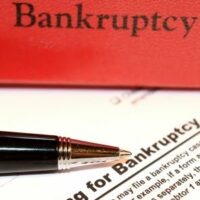Will I Lose All Of My Property If I File For Bankruptcy?

If you are considering consumer bankruptcy in the St. Petersburg area and you have started to conduct some of your own research into the steps you will need to take to file, you might have come across information about the liquidation of assets. Or, if you have a friend or family member who filed for Chapter 7 bankruptcy in the past, they might have told you that you will end up losing most of your property in your bankruptcy filing. We want to help dispel this misconception and myth, and to provide you with the information you need when it comes to filing for personal bankruptcy.
Chapter 13 Bankruptcy Does Not Result in the Liquidation of Assets
First, you should know that a Chapter 13 bankruptcy filing will not result in the liquidation of any of your assets. To be clear, it is not a liquidation bankruptcy. Instead, Chapter 13 bankruptcy is a type of reorganization bankruptcy. What does this mean? Instead of your non-exempt assets being liquidated—and we will explain bankruptcy exemptions shortly—you will develop a repayment plan that will last over a period of three to five years in which you will repay creditors for the debts you owe on your non-exempt assets. Through your repayment plan, you will make monthly payments that will go to your creditors to pay the debts you owe. Once the terms of your repayment plan end, you can be eligible for a discharge of remaining debt as long as you have met the terms of your repayment plan.
In addition, Chapter 13 bankruptcy actually allows debtors to stop a foreclosure and to get back on track with mortgage payments, effectively allowing a person to avoid the loss of property through bankruptcy.
Exempt Assets in Your Chapter 7 Bankruptcy Case
Chapter 7 bankruptcy, different from Chapter 13 bankruptcy, is a type of liquidation bankruptcy. When you have spoken with other people about having property sold as part of your bankruptcy case, or you have researched consumer bankruptcy and have discovered that you may need to liquidate assets, you were learning about Chapter 7 bankruptcy and not Chapter 13 bankruptcy. Yet it is important to know that not all assets will be liquidated in a Chapter 7 bankruptcy case. In fact, Florida law is quite generous when it comes to bankruptcy exemptions and the assets you are allowed to keep in your consumer bankruptcy case.
According to Florida law, the following are examples of exempt property that you will be allowed to keep and that will not be liquidated as part of your bankruptcy case:
- Unlimited amount of equity in your home, which is known as the homestead exemption (and is among the most generous homestead exemptions in the country);
- Up to $1,000 in personal property of your choosing, or up to $4,000 in personal property of your choosing if you do not use the homestead exemption;
- Education savings accounts;
- Health savings accounts;
- Hurricane savings accounts;
- Health aids;
- Up to $1,000 of equity in your motor vehicle;
- Up to $750 per week in wages, or 75 percent of 30 times the current federal minimum wage (whichever is greater); and
- Pensions and retirement accounts.
Contact a St. Petersburg Bankruptcy Attorney
If you have any questions about personal bankruptcy, our St. Petersburg bankruptcy attorneys can assist you. Contact the Law Offices of Stephen Barszcz today.
Resource:
leg.state.fl.us/statutes/index.cfm?App_mode=Display_Statute&URL=0200-0299/0222/0222ContentsIndex.html
